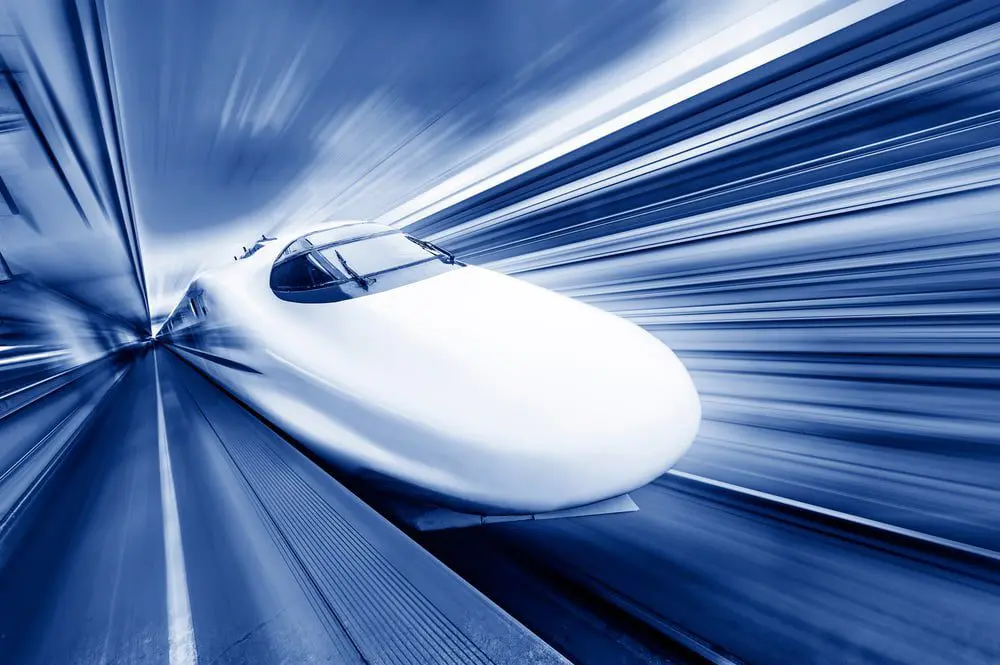Ultimate precision, and fast speeds – Japanese rail systems have achieved legendary status, but you won’t believe how fast this Maglev train goes.
European-style railways were first developed in Japan under the Meiji Restoration government – the first line linked Tokyo’s Shimbashi to Yokohama in 1872. Since then the system has sprawled out to reach across most of the country. The Japanese rail system has achieved legendary status around the world as the most efficient rail system, never running late (unless there’s been an accident).
We take a look at some of Japan’s coolest trains.
Shinkansen (Bullet Train)

Running at speeds of up to 320km/h, these Japanese bullet trains are known for punctuality (we’re talking precision to the second), comfort, safety (no fatal accidents in it’s history) and of course efficiency.
It’s hard to believe that these futuristic bullet trains began operating in 1964, since then they’ve carried 5.6 billion passengers between Tokyo and Osaka.
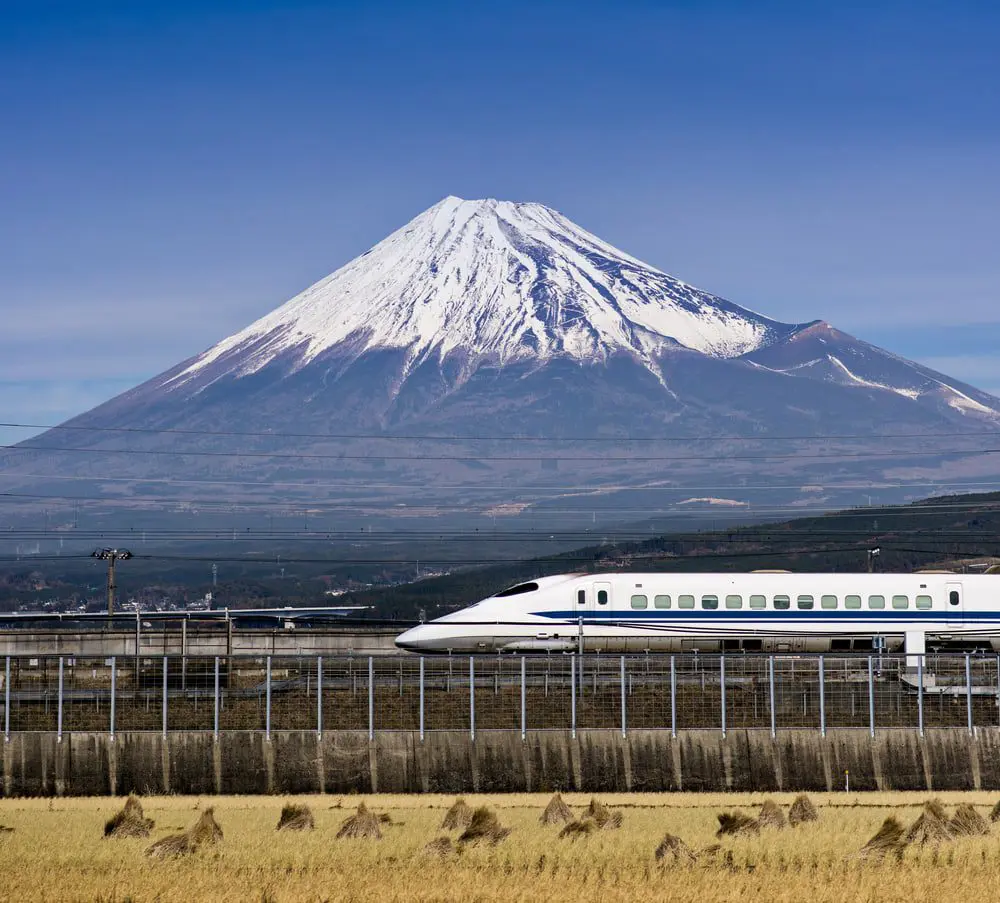
Many people don’t know that the Shinkansen trains have evolved over the years cutting down the travel time from 4 hours to 2 hours and 25 minutes today. Before the Shinkansen, the trip would have taken 8 hours.
FUN FACT: “Ladies and gentlemen, welcome to the Shinkansen”, the familiar English announcement on the Tokaido Shinkansen is provided by Donna Burke, and Australian singer.
Cruise Train
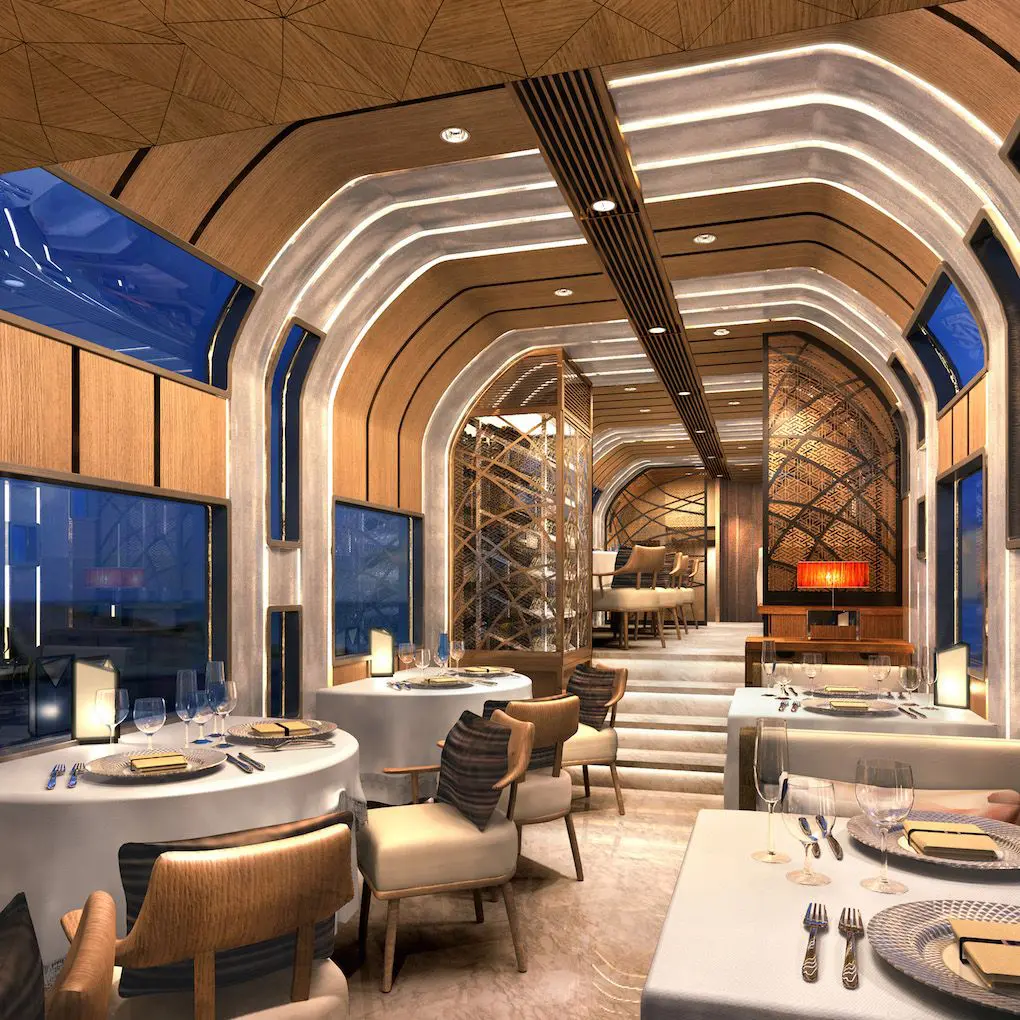
Dining Carriage
Sometimes it’s not all about speed, Ken Okuyama, famed in automobile design circles for Ferrari super-cars, was asked a super luxury Cruise Train, coming to tracks in 2017.
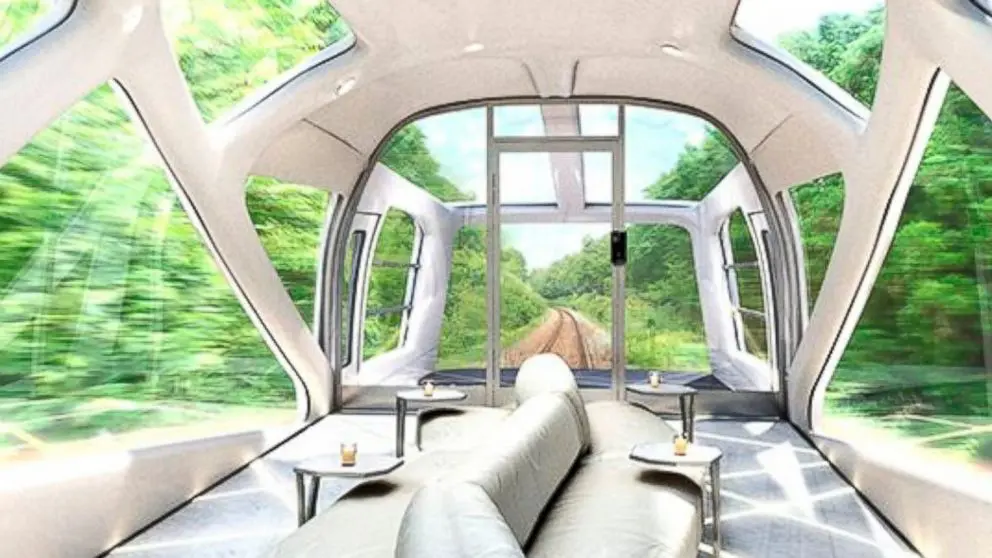
Observation Deck
The train features two observation carriages at the front and back of the train allowing passengers to enjoy Japan’s landscapes and culture throughout the journey.

Deluxe Suites
Suites will feature a private bathroom with a shower and toilet, but the top sleeping space is the split level deluxe suite, which sleeps four.
Japanese MAGLEV
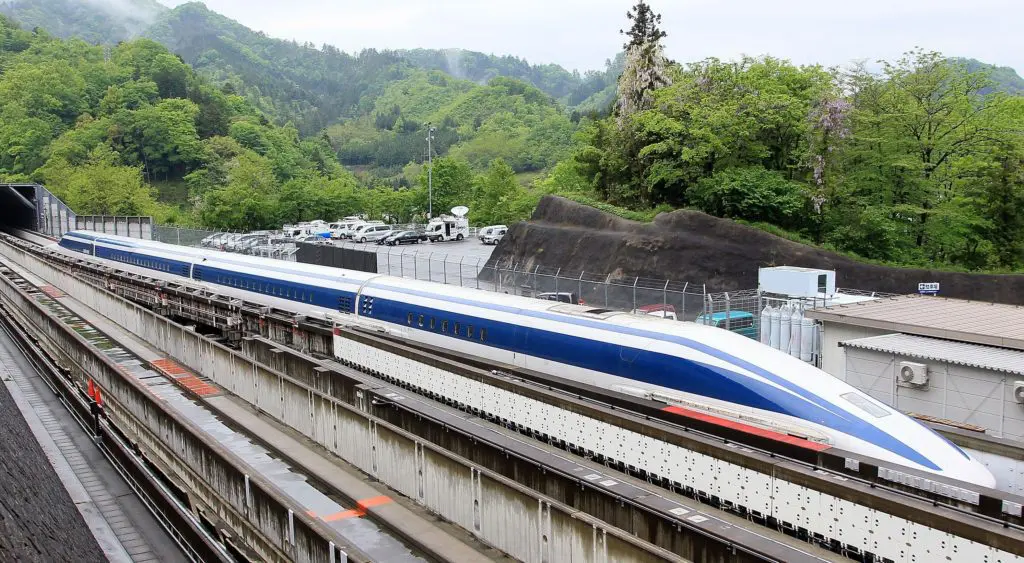
Japanese ideals would never rest on the laurels of Bullet Trains, after all 320km/h was good, but their European counterparts have been working on high speed systems that have rivaled the legendary Shinkansen. Enter the Maglev (short for magnetic levitation), it floats above the tracks, so there’s no friction slowing it down. They’re still in testing and not due for completion until 2027 but the super fast train has reached 581km/h in Japan (2003) making it the world’s fastest train.
I’m sure they won’t stop there, the technology has the potential to exceed 6437 km/h.

Catching trains in Japan?
Cabs are expensive and Japan and even higher at night from 10pm – 5am, so make sure you get a good grasp of the excellent public transport system. To get a better handle, download the easy to use Hyperdia app (in English and Japanese). You can ask questions like “Narita Airport to Shibuya Station, last train” and the search parameters will set automatically. Easy.


